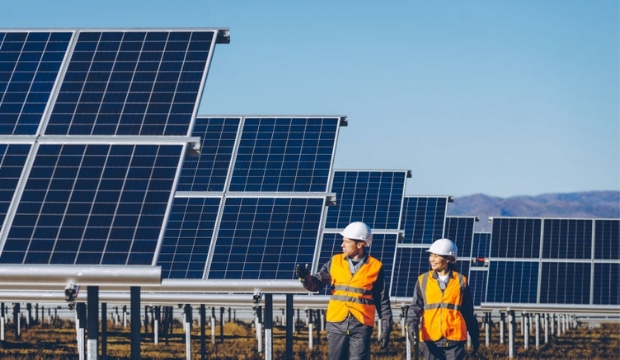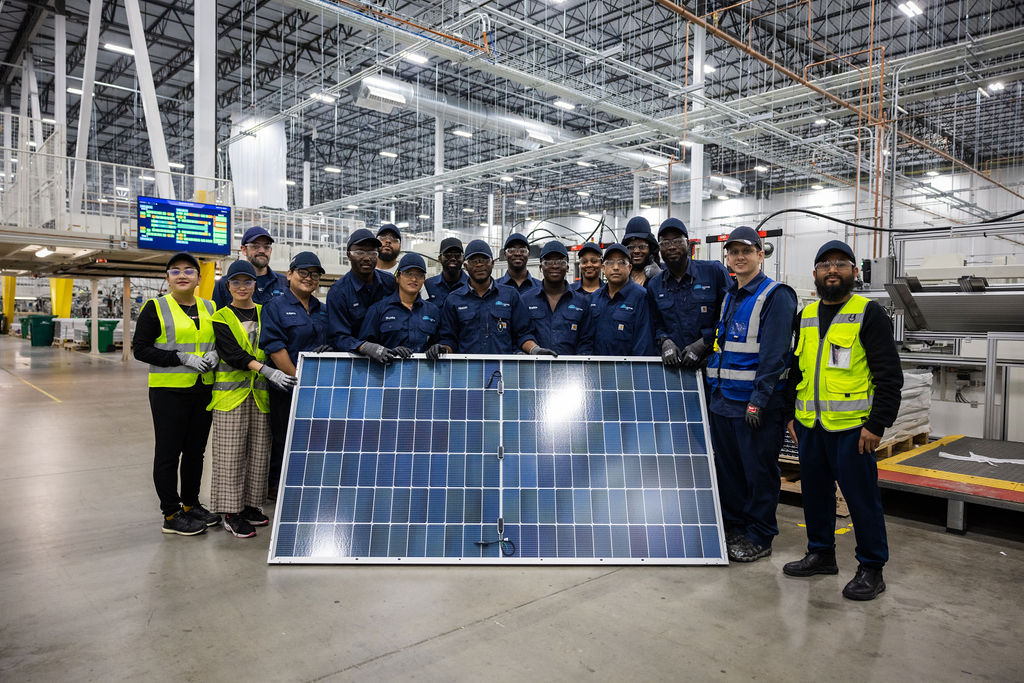Excitement About Residential Solar Panels Virginia
Excitement About Residential Solar Panels Virginia
Blog Article
Solar Power for Homes Virginia: Lumina Solar Focuses On Offering Advanced Photovoltaic Solutions For Houses And Services
History and Founding
Have you ever wondered how a solar panel business springs from a mere trigger of motivation into a powerhouse of eco-friendly energy? It frequently starts with a vision-- one fueled by a blend of innovation, determination, and a pinch of serendipity. The journey of lots of solar business mirrors the evolution of the technology itself: from large, inefficient panels to streamlined, high-efficiency marvels harnessing the sun's bounty.
The Early Days
In the late 20th century, when solar energy was still a niche principle, pioneers planted seeds for what would become an international motion. Think of a small workshop filled with curious engineers, relentlessly try out solar batteries. Their enthusiasm was palpable, frequently driven by a desire to fight environment modification and decrease dependence on nonrenewable fuel sources.
One such anecdote has to do with a creator who, motivated by an outdoor camping trip, recognized that even in remote areas, the sun could power important gadgets. This simple observation stimulated a company's mission to equalize access to clean energy.
Founding Concepts

- Development: Continuously pushing the limits of solar innovation to improve efficiency and sturdiness.
- Sustainability: Committing to environmentally friendly manufacturing and lowering carbon footprints.
- Accessibility: Making renewable energy services cost effective and practical for daily users.
Milestones in Development
| Year | Secret Event |
|---|---|
| 1985 | Business established in a little garage, focusing on research study and advancement. |
| 1995 | First industrial solar panel item launched, gaining local attention. |
| 2005 | Expanded to international markets, embracing international renewable resource objectives. |
| 2015 | Presented cutting-edge solar panel innovation with enhanced energy conversion. |
Isn't it remarkable how these incremental steps, often overlooked, form the energy landscape today? The solar panel company story is not practically innovation; it has to do with a ruthless quest for a brighter, cleaner future.

Innovations in Solar Panel Technologies
Ever discovered how some photovoltaic panels gleam brighter and last longer? It's not magic; it's the science of photovoltaic efficiency. Modern photovoltaic panel business invest heavily in technologies like bifacial cells, which record sunlight from both sides, enhancing energy harvest without broadening roofing space. Have you ever questioned why some panels perform much better on cloudy days? That is because of advances in thin-film solar technology, which prospers under diffused light conditions.
Item Variations Tailored to Distinct Requirements
One size never fits all. Photovoltaic panel providers now provide:
- Monocrystalline panels for maximum effectiveness and streamlined aesthetics, suitable for space-constrained roofs.
- Polycrystalline panels, which use a cost-efficient option without sacrificing too much output.
- Building-integrated photovoltaics (BIPV), merging solar tech effortlessly into architectural elements like windows and facades.
Selecting the ideal product isn't almost in advance expense; it's about matching your environment, energy objectives, and long-term cost savings. For instance, homes shaded by trees need panels that stand out in low-light situations, something numerous ignore until energy bills climb all of a sudden.
Technical Tips for Optimum Choice
- Assess the temperature level coefficient-- lower worths indicate panels lose less performance on hot days.
- Search for panels with improved anti-reflective finishes to optimize light absorption.
- Consider the panel's warranty not simply for flaws, but for guaranteed power output over decades.
- Do not undervalue the value of the inverter technology matched with the panels; it can make or break your system's performance.
Beyond Panels: Emerging Trends
Think of photovoltaic panels that adjust their angle automatically to chase the sun-- tracking systems are becoming more accessible, increasing yield considerably. Or solar tiles that blend undetectably into your roofline, changing your home into a silent, self-sufficient power generator. These innovations are improving what a solar panel business offers-- not simply items, but incorporated energy solutions.
Market Existence and Global Operations
Ever wonder why some solar panel companies seem to sprout up in every corner of the globe while others barely make a ripple? The difference lies not just in innovation but in mastering the art of navigating varied markets. Expanding worldwide resembles planting seeds in different environments-- you need to understand each environment's special conditions to prosper.
Take, for example, the detailed dance of logistics and supply chain management. Shipping panels midway across the world isn't simply about range; it has to do with timing, customizeds, tariffs, and adapting to local demand variations. A business with robust global operations anticipates these variables, ensuring panels show up on schedule without pumping up expenses. This foresight is no small task and frequently separates industry leaders from fans.
Key Strategies for Expanding Market Existence
- Localized production: Developing production hubs near target audience minimizes shipping hold-ups and import complexities.
- Strategic collaborations: Working together with local firms accelerates market penetration and constructs trust.
- Adaptive product style: Tailoring solar panel tech to weather, sun strength, and facilities subtleties boosts efficiency and acceptance.
What about the human factor? Photovoltaic panel companies operating globally need to fix up cultural differences and regulative nuances without losing sight of their core objective. For example, what operate in a sun-drenched desert might falter in a read more humid seaside area. In some cases, the most ingenious option is just listening-- taking in local insights to improve innovation and method.
Professionals often advise a phased rollout instead of a shotgun expansion. Why run the risk of overextension when determined development builds sustainable momentum? Scaling carefully means balancing aspiration with operational strength - Best Solar Panel Company Virginia. In the race for sustainable energy dominance, persistence can be as valuable as speed.
Environmental Effect and Sustainability Practices
When solar panels first emerged, lots of presumed they brought no ecological luggage. The truth is more nuanced. The production of photovoltaic cells includes uncommon earth metals and energy-intensive processes, which can leave a substantial carbon footprint before the panels even reach roofs. The true ecological expense depends greatly on the sustainability practices used by the solar panel company throughout the lifecycle of their products.
How often do we pause to consider what takes place to solar panels at the end of their useful life? Unlike batteries or electronic devices, solar panels can last 25-30 years, but disposal and recycling pathways stay underdeveloped in numerous areas. A business dedicated to minimizing environmental harm will have a robust strategy for recycling photovoltaic products, restoring valuable silicon, glass, and metals to prevent landfill build-up.
Secret Sustainability Strategies
- Utilizing low-impact production techniques that reduce water and energy consumption.
- Carrying out closed-loop systems to recycle production waste back into brand-new panels.
- Participating in transparent supply chain audits to ensure ethical sourcing of basic materials.
- Creating panels for much easier disassembly to assist future recycling efforts.
It's worth keeping in mind that some solar business have originated ingenious methods, such as integrating naturally degradable parts or using less poisonous chemicals throughout fabrication. This not just reduces environmental strain however also sets a precedent for the market. The concern stays: can the solar market really pivot towards a circular economy model without sacrificing effectiveness or price?
Specialist Tips for Evaluating Sustainability
- Ask about the company's commitment to carbon-neutral manufacturing and whether they offset emissions.
- Examine if they partner with accredited recycling centers committed to solar panel waste.
- Try to find openness reports detailing environmental effects and sustainability goals.
- Consider the durability and service warranty of panels as an indirect step of resource performance.
In the end, going with solar power should indicate more than simply slashing electrical energy costs; it has to do with supporting a future where energy is harvested responsibly and waste is attentively managed. Photovoltaic panel companies that welcome this approach not only brighten homes but also cast a brighter light on sustainable development.
Report this page